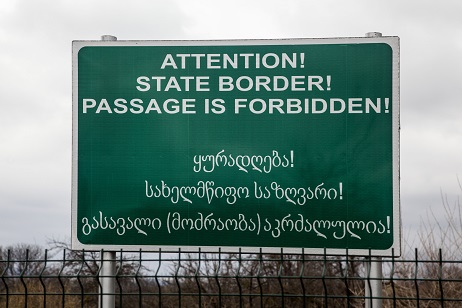Russian guards kidnap three Georgians from border village church

Three Georgian men are being held unlawfully in occupied Tskhinvali (South Ossetia) after being kidnapped by Russian border guards as they celebrated Saint George’s Day at a village church.
Earlier this morning Russian border soldiers kidnapped Davit Gulitashvili, Zurab Korinteli and Giorgi Gogiashvili from a Georgian village church near the Administrative Boundary Line (ABL) with Russian-occupied Tskhinvali (South Ossetia).
The men were at the Saint George Church in Adzvi village with their families when Russian soldiers captured them and took them in the direction of Tskhinvali.
The men’s families, who included children, were allowed to freely leave the area.
Today people throughout Georgia are celebrating Saint George’s Day. This Saint is believed to be the patron of the nation, so November 23 is one of the most significant days in the country’s religious calendar.
Detention of Georgian citizens near the ABL is a common violation by Russian occupation troops in Georgia.
Official figures released by local non-governmental organisation Institute for Development of Freedom of Information (IDFI) revealed more than 2,000 Georgian citizens have been detained by Russian border guards in the past six years.
Between 2009 and 2015 the agency said 2,117 Georgian citizens had been kidnapped at ABL’s near Georgia’s occupied Tskhinvali (South Ossetia) and Abkhazia regions. The data, based on statistics provided by Georgia’s Interior Ministry, claimed every single detainee had been charged with illegally crossing the so-called border.
IDFI said 1,416 people had been detained at the ABL with Abkhazia while 701 were detained at the Tskhinvali ABL.
The detained people are usually released after their families pay a ransom – a so-called fine for ‘illegally crossing the so-called border’.
 Tweet
Tweet  Share
Share